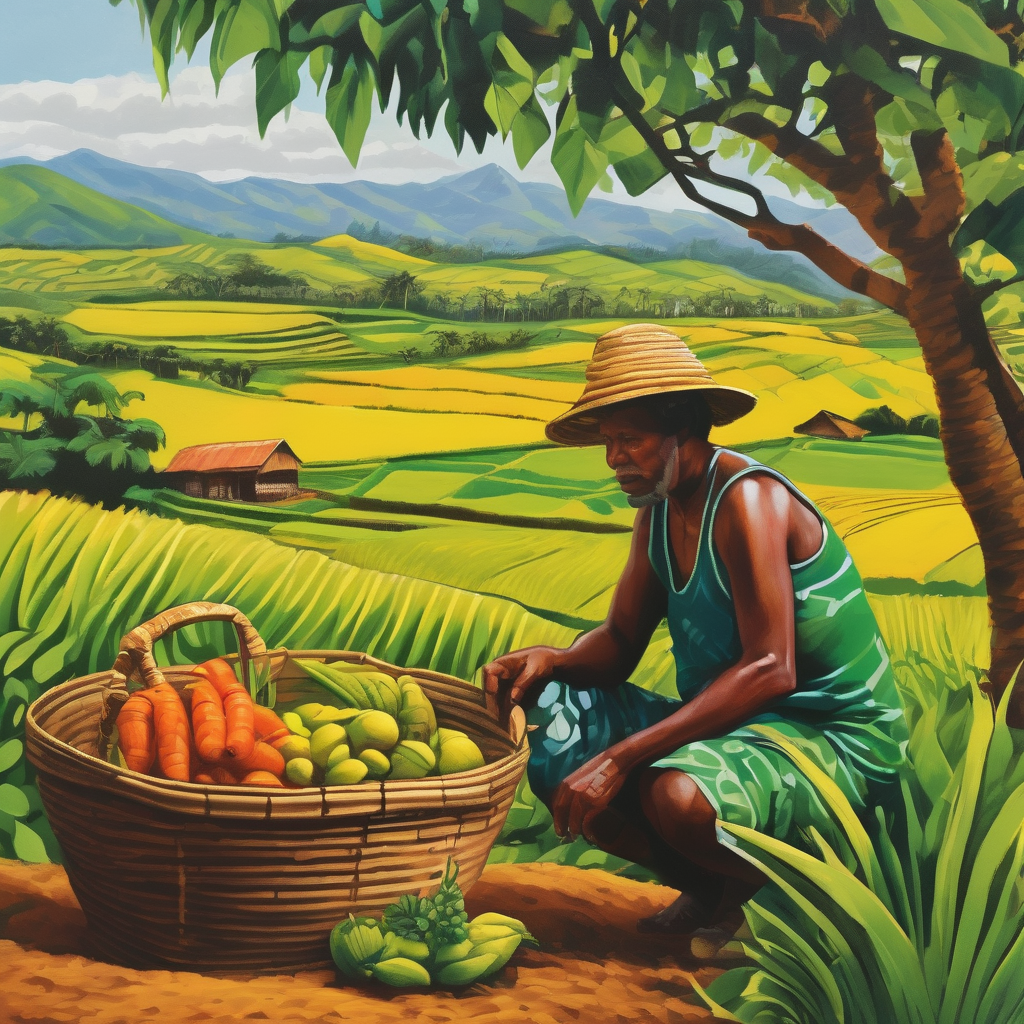In the 1970s, brothers Bali Karan and Jai garnered attention for their successful dalo farming on a 16-acre parcel of Crown land in Muaniweni, Naitasiri. Their accomplishments were featured in a Fiji Times report on November 9, 1976. The brothers not only concentrated on dalo but also diversified their farming by growing cash crops such as beans, bhindi, corn, and kumala. Additionally, they raised cattle and sold their produce at the Suva Market, making a significant contribution to the local economy.
Despite their success, the Karan brothers faced financial difficulties typical of many farmers during that era. The cessation of operations at the Nausori sugar mill in 1958 left a deep impact on the agricultural landscape, pushing farmers, including the Karans, into a cycle of debt while they transitioned to new crops. This period of uncertainty persisted until the farming environment began to shift positively in the 1970s.
During this time, the majority of farmers in Muaniweni gradually embraced commercial agriculture, improving their budgeting skills to better manage their finances. This transition proved to be a key development for the community, as adapting to diverse crops opened up paths to economic recovery and stability.
The stories of resilience among contemporary farmers echo those of the past, displaying a strong spirit within Fiji’s agricultural sector. Take, for example, Anare Saruicava, who has fond memories of watching his father at the Suva market in the 1970s. Today, he runs a successful farm on Koro Island, growing kava and dalo. Saruicava stresses the importance of investment and teamwork in farming, which are essential to overcome challenges such as poor road conditions and logistical hurdles.
The experiences shared by farmers, both past and present, highlight ongoing struggles and successes within Fiji’s agricultural community. These narratives serve as an inspiring reminder that with dedication and collective support, farming can be a key route to economic independence and sustainable livelihoods. As advocates like Saruicava emphasize the significance of recognizing agricultural work, they underline the essential role of farming in fostering resilience and financial stability amid evolving economic conditions.
Hope thrives in these communities as they strive for a more secure agricultural future, reinforcing the belief that cultivating the land can provide significant benefits for generations to come.
